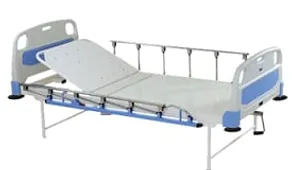Why Rent a Hospital Bed?
Hospital beds are designed to provide better support, positioning, and safety features compared to regular home beds. They come with adjustable frames that allow for head, foot, and height adjustments, enabling patients to find the most comfortable and beneficial positions. These beds also often include side rails, which can help prevent falls and facilitate mobility. Renting a hospital bed rather than buying one has several advantages:
Cost-Effectiveness: Hospital beds can be expensive to purchase outright. Renting allows access to high-quality beds at a fraction of the cost, making it a financially viable option for many families.
Short-Term Needs: Many patients only need a hospital bed for a short period, such as during recovery from surgery or a temporary illness. Renting provides the flexibility to return the bed when it is no longer needed.
Up-to-Date Equipment: Rental services often offer the latest models and technology, ensuring that patients benefit from the most advanced features available without the need for a long-term investment.
Maintenance and Support: Rental agreements typically include maintenance and repair services, ensuring that the bed remains in good working condition without additional costs or effort from the user.
Choosing the Right Hospital Bed
Selecting the appropriate hospital bed for rent involves considering several factors to ensure it meets the patient's specific needs:
Type of Bed: There are various types of hospital beds, including manual, semi-electric, and fully electric models. Fully electric beds provide the most convenience, allowing easy adjustments with the push of a button, while manual beds may require more physical effort to adjust.
Patient Mobility and Condition: The patient’s mobility and medical condition should guide the choice of bed. For instance, patients who need frequent repositioning may benefit from a fully electric bed, while those with minimal mobility issues might find a semi-electric or manual bed sufficient.
Weight Capacity: Ensure the bed can support the patient’s weight. Bariatric beds are available for heavier patients, providing additional support and comfort.
Additional Features: Consider any additional features that may be beneficial, such as built-in scales, specialized mattresses to prevent bedsores, or adjustable side rails.
Space and Home Layout: Assess the space where the bed will be placed. Ensure there is enough room for the bed to be fully adjusted and for caregivers to move around comfortably.
The Rental Process
Renting a hospital bed typically involves the following steps:
Consultation: Contact a rental service provider to discuss your specific needs. They can provide recommendations based on the patient’s condition and the available options.
Delivery and Setup: Once a bed is selected, the provider will arrange for delivery and setup in the patient’s home. This often includes instructions on how to use the bed and any safety features.
Rental Agreement: Review and sign a rental agreement that outlines the terms, including rental duration, cost, maintenance, oxygen concentrator for rent in bangalore and repair services.
Support and Maintenance: Rental companies usually offer ongoing support and maintenance services to ensure the bed remains functional and safe for use.

No comments:
Post a Comment